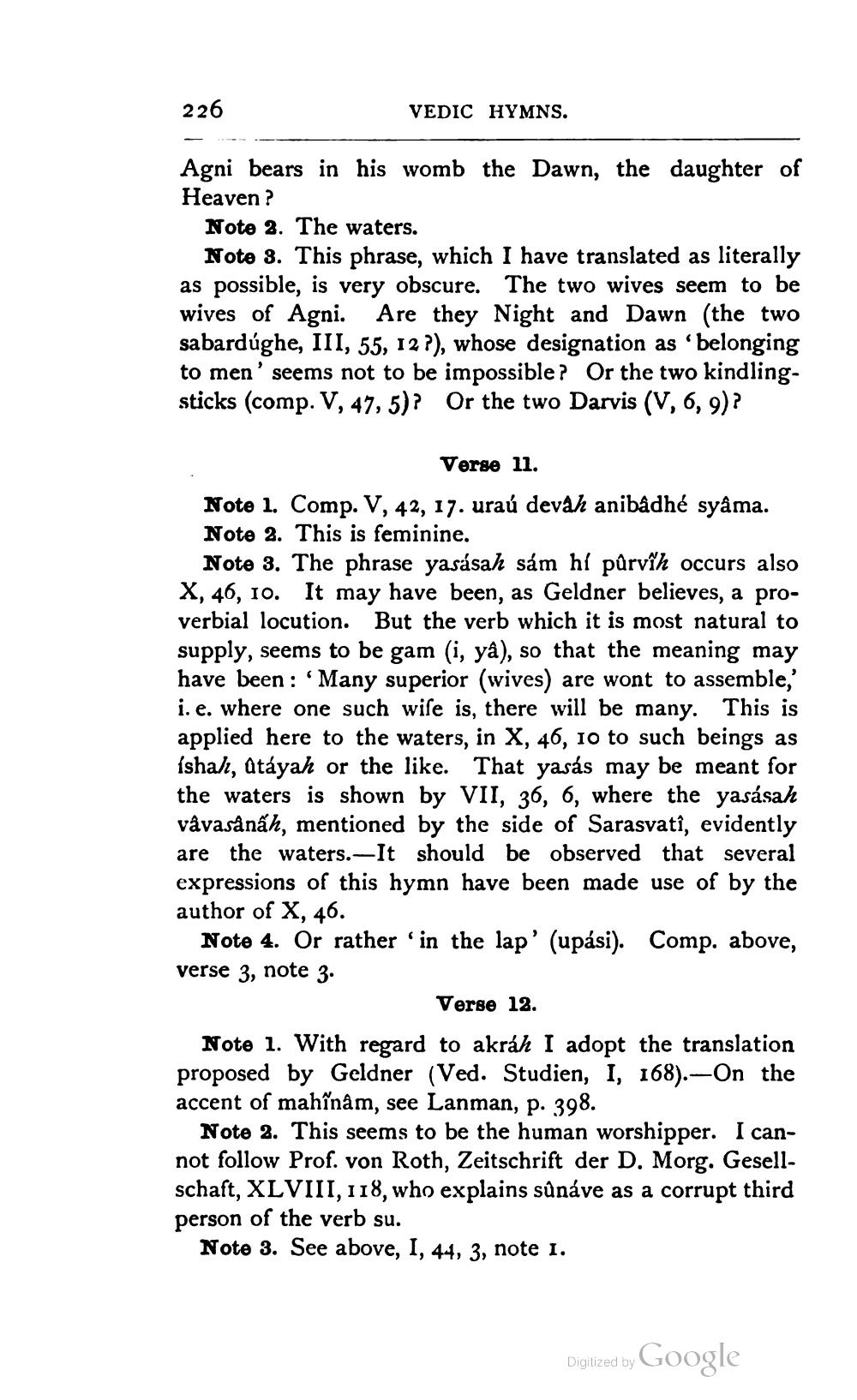________________
226
VEDIC HYMNS.
Agni bears in his womb the Dawn, the daughter of Heaven?
Note 2. The waters.
Note 3. This phrase, which I have translated as literally as possible, is very obscure. The two wives seem to be wives of Agni. Are they Night and Dawn (the two sabardúghe, III, 55, 12 ?), whose designation as 'belonging to men'seems not to be impossible? Or the two kindlingsticks (comp. V, 47, 5)? Or the two Darvis (V, 6, 9)?
Verse 11. Note 1. Comp. V, 42, 17. uraú devah anibâdhé syâma. Note 2. This is feminine.
Note 3. The phrase yasásah sám hi purvih occurs also X, 46, 10. It may have been, as Geldner believes, a proverbial locution. But the verb which it is most natural to supply, seems to be gam (i, ya), so that the meaning may have been: 'Many superior (wives) are wont to assemble, i. e. where one such wise is, there will be many. This is applied here to the waters, in X, 46, 10 to such beings as (shah, atáyah or the like. That yasás may be meant for the waters is shown by VII, 36, 6, where the yasásah vâvasånáh, mentioned by the side of Sarasvatî, evidently are the waters.- It should be observed that several expressions of this hymn have been made use of by the author of X, 46.
Note 4. Or rather in the lap' (upási). Comp. above, verse 3, note 3.
Verse 12. Note 1. With regard to akráh I adopt the translation proposed by Geldner (Ved. Studien, I, 168).—On the accent of mahînâm, see Lanman, p. 398.
Note 2. This seems to be the human worshipper. I cannot follow Prof. von Roth, Zeitschrift der D. Morg. Gesellschaft, XLVIII, 118, who explains sûnáve as a corrupt third person of the verb su.
Note 3. See above, I, 44, 3, note i.
Diglized by Google




